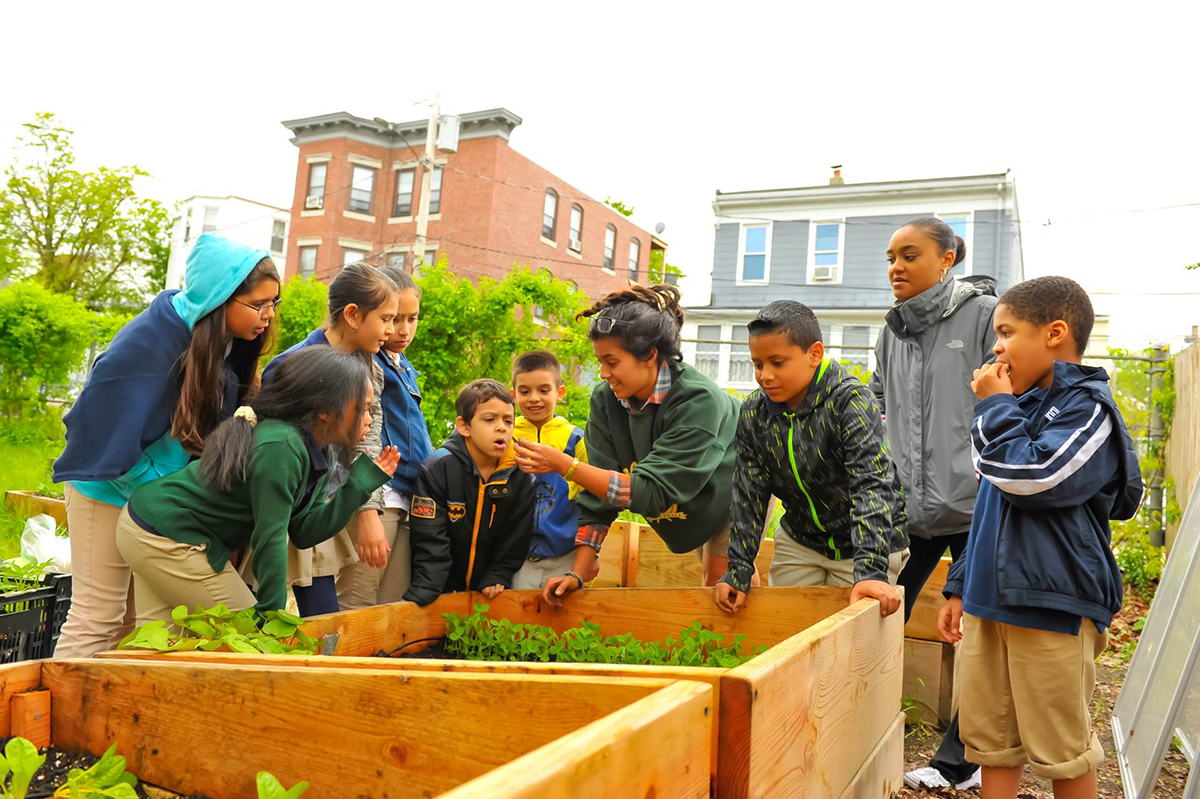The East Boston YMCA Is Offering Cooking Classes and Urban Gardening
In East Boston, more than 30 percent of adults are obese. And of Boston’s six neighborhoods, it’s considered the worst food desert, with the lowest number of grocery stores per neighborhood in the city.
But the East Boston YMCA is not dwelling on these statistics. Instead, it’s working to change them.
For the last year, the East Boston Y has offered a laundry list of free, all-ages programs—including an on-site garden, healthy cooking classes, and a kids gardening group—aimed at addressing food access inequality. All of the classes are open not just to Y members, but anybody interested in attending.
“We have a glaring issue in America with obesity and diabetes and illness due to food,” says Meg Tallon, a trained chef who heads up the Y’s cooking class program. “Just talking to somebody about healthy eating sometimes isn’t enough, because in some neighborhoods in cities people really don’t have access to fresh produce and fresh food.”
East Boston is one of those neighborhoods. Not only is it Boston’s worst food desert—meaning a very low percentage of its residents live within a one-mile walk to a grocery store—but about a fifth of the East Boston population is part of the SNAP program. It’s been well-publicized that the $1.50 per person per meal that SNAP provides is not enough to fund a healthy, produce-heavy diet, and Tallon says the Y’s classes are aiming to ease that burden in whatever way they can.
“Fresh food and fresh produce and healthy food is not in abundance [in East Boston],” Tallon says. “I have a lot of people that say to me, ‘I really really want to eat a better diet, I really want to learn how to cook for my family in a healthier way,’ and they appreciate having a chance to come in and take these classes and learn from our staff nutritionist.”
The Y is also trying to intervene early, with some programs focusing on children and teenagers. One is the “Urban Farm to Table” group, which, in partnership with urban farming initiative Green City Growers, allows 10 kids between the ages of 6 and 12 to plant, maintain, and harvest a garden, then use the produce in a cooking class with Tallon. “Two of the kids in the class told me that it was the best day of their life, and one of the young girls in the class said to me that she felt her food was filled with love,” she says. “The impact is incredible.”
Even more programs are in the works, including community dinners and produce bundles available to YMCA families. If the first year is any indication, Tallon says that the impact of the Y’s efforts will only continue to grow. “In June it will be one year since we’ve started teaching classes, so we’re a new program and we’re learning,” she says. “But so far the feedback has been incredible.”



